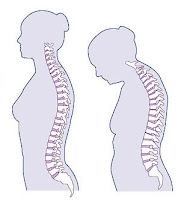What You SHould Know About Osteopenia

What it is: Lower than average bone density.
Why it's not Necessarily Serious: While many women might associate osteopenia with it's more serious cousin, osteoporosis, that's a mistake. Osteopenia is not a disease, says Dr. Nelson Watts, M.D., director of the University of Cincinnati Bone Health and Osteoporosis Center. Osteoporosis, on the other hand, means that the bones are fragile and are more likely to break.
When to worry: While osteopenia isn't necessarily cause for concern, you should get regular bone density tests to check for osteoporosis. Experts recommend that you get your first scan at age 65, or 60 if you have a history of fractures or other risk factors, such as low body weight (under 150 pounds), a family history of osteoporosis, an inactive lifestyle, or smoking.
Why it's not Necessarily Serious: While many women might associate osteopenia with it's more serious cousin, osteoporosis, that's a mistake. Osteopenia is not a disease, says Dr. Nelson Watts, M.D., director of the University of Cincinnati Bone Health and Osteoporosis Center. Osteoporosis, on the other hand, means that the bones are fragile and are more likely to break.
When to worry: While osteopenia isn't necessarily cause for concern, you should get regular bone density tests to check for osteoporosis. Experts recommend that you get your first scan at age 65, or 60 if you have a history of fractures or other risk factors, such as low body weight (under 150 pounds), a family history of osteoporosis, an inactive lifestyle, or smoking.
Comments